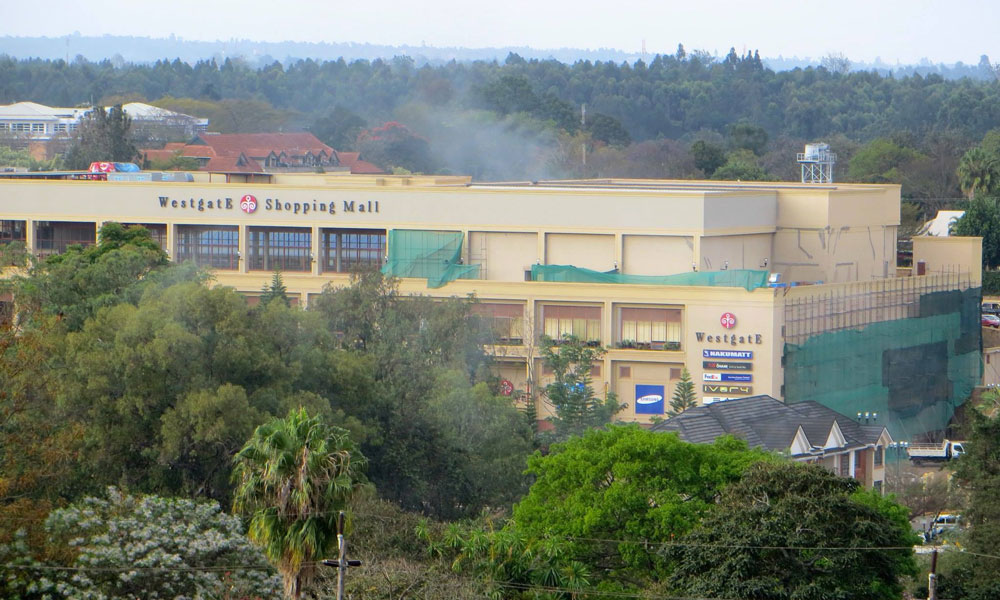
Nairobi Terror Attack Puts Focus on Mall Security
While the scale of the Westgate Mall incident in Kenya this week has drawn attention to the need for mall security, one industry group says that focus was already there—and will likely intensify here at home.
The deadly, days-long siege at a Kenyan mall has many looking at shopping centers worldwide in a different light.
The Somali militant group al-Shabaab, which the U.S. designated a terrorist organization in 2008, has claimed responsibility for the attack at the Westgate Mall in Nairobi this week that left at least 72 dead (including five of the suspects) and injured hundreds. With early investigative reports suggesting that those responsible had planted large weapons at the mall beforehand and could have colluded with a mall employee, the level of planning appears to have been unprecedented for such an attack. It understandably has raised concerns of copycat incidents elsewhere.
But while the attack might sharpen the focus on mall security, that focus isn’t new. Due to the open nature of many shopping centers, officials have long been considering how to strengthen security, according to one industry group. More details:
“Soft targets”: According to the International Council of Shopping Centers, a U.S.-based organization that represents more than a third of the global retail space, the attack in Kenya, though an anomaly, may lead to more security. But it’s not the first incident that has encouraged such a response. “Since 9/11, the industry has taken a very different view of terror, and the potential for it,” spokesman Malachy Kavanagh told NBC News. According to security experts, malls are “soft targets”—fairly open, easy-to-access environments—so a strong security approach is essential.
How mall security works: How to keep such an open environment safe? With multiple layers of security. According to a Time magazine report, it starts at the parking lot, designed with choke points to slow cars down. Inside, security guards (who, despite derisive “mall cop” connotations, are capable at their jobs) provide a clear, visible sign of security. Bomb-sniffing dogs and security cameras add more layers of protection. And large malls often have plainclothes officers who will approach people acting suspiciously. This “soft contact” technique is commonly used in Israeli malls, which have faced terror threats in the past.
An earlier attack: Nairobi isn’t the first scare the industry has had—and an earlier incident hit much closer to home. A 2007 shooting in a Nebraska shopping mall played a major role in boosting security. After a 19-year-old man fatally shot eight people and injured five others at the Westroads Mall in Omaha, the industry started working more closely with the Department of Homeland Security on emergency response to such situations, according to the Associated Press.
Like malls, convention centers are largely open environments. What sort of security measures do you take at your events? Let us know your take in the comments.
The Westgate shopping mall in Nairobi, Kenya, at the time of the attacks. (photo by Anne Knight/Wikimedia Commons)






Comments